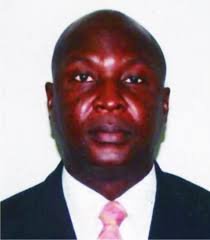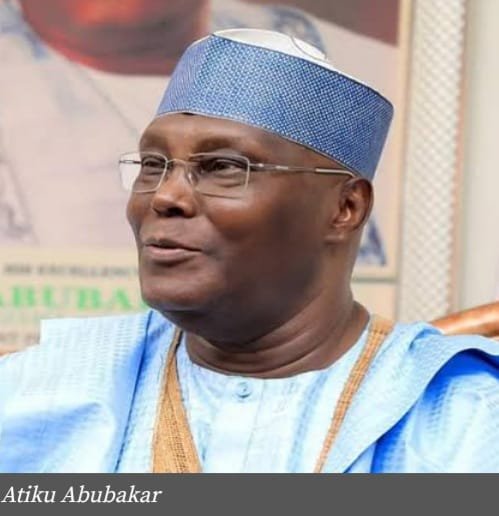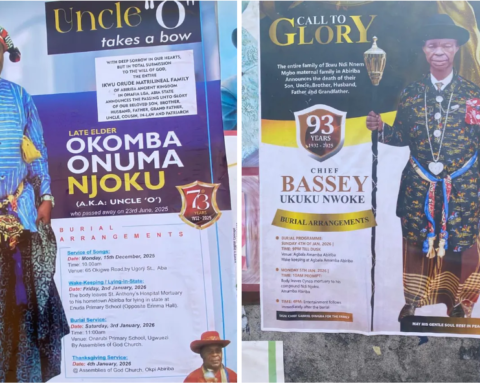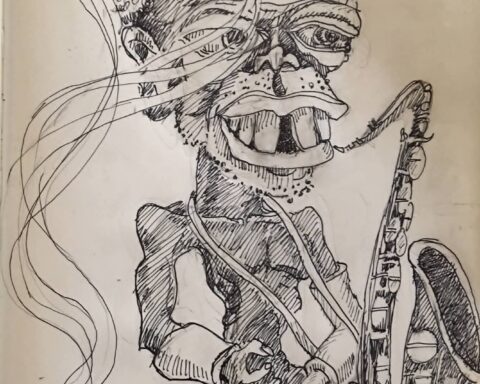
The parentage of Nigeria’s 1999 Constitution has never been in doubt. The military sired it. That, automatically, rendered the document jaundiced from birth. An outcome of rape, so to say – in the context of the abnormality of an undemocratic regime forcefully truncating a democratic system and turning around to prescribe the grundnorm for the same democratic order – the 1999 constitution has been traduced at various junctures, for its awkward foundation.
The Constitution is also criticized, at different times and in various quarters, for traces of manifest authoritarianism in some of its provisions, not the least of which is the overloading of powers at the centre. This arrangement counters the spirit of federalism, that thrives best in diversity and relative autonomy of the components.
The innate competitiveness among Nigeria’s constituent parts, each harnessing its distinctive capacity, while running at its own pace, had been the strength, rather than a handicap, of the federation. The military, with its command structure, obviously, did not seem to understand all that. If it did, it was too beholden to its tradition of centralized authority, to care. The result is a jackboot constitution, bequeathed Nigeria in 1999, a document that constricted, rather than unfettered the creative spirit and diversity that made the country truly dynamic and productive.
In truth however, what ails the 1999 constitution is not its origin alone. The character of the political class that succeeded the military, is a major challenge, no less. Either by default, or by design, the military handed over the country to a political class that was short in genuine subscription to the true values of democracy. Greed, power mongering and rent seeking, more than encompassing national vision and spirit of accommodation, have largely become the face and character of political leadership in contemporary Nigeria.
As is often the case, the constitution seems to be held up by the political elite, mainly when the document can be used to confer advantage in a quest for power. Outside such consideration, the document is largely expendable.
The fact that the 1999 constitution did not make explicit provisions on how political power will be shared or rotated, among the constituent parts of the country, has also remained a problem. For a federation of fiercely competitive, if not mutually suspicious groups, this is a no mean lacuna.
It is possible that the issue would not have become a pressing challenge, had the country been fortunate over the years, to produce a line of statesmen-presidents, whose perspective of the presidency was broader than what narrow prism of primordial triumphalism offers. That has not happened.
When, in 1993, former vice president, Dr. Alex Ekwueme, ever a profound thinker, developed and proffered the concept of six geopolitical zones, at the National Conference, as a viable political structure that will advance peace and equity in Nigeria, he offered a fresh window to address a nagging national problem.
Give credit to General Sani Abacha, often denounced, with reasons, the military dictator bought the Ekwueme concept, even as politicians at the National Conference, propelled by personal political calculations, had almost turned their back on the concept. Abacha adopted and subsequently, introduced the six geopolitical zone structure, as a template for political and administrative position-sharing in the country.
It is also to the eternal credit of Dr. Ekwueme, that he proceeded to spear-head the adoption by the ruling Peoples Democratic Party (PDP), of the zoning formula, an arrangement designed to ensure rotation of power among the six geopolitical zones. What a man!
How the PDP and Nigeria lost it all, with the death of President Umaru Musa Yar‘Adua and the dissonance that overtook the ruling party, over the propriety or otherwise, of President Jonathan seeking a fresh mandate, after completing the tenure of Yar’Adua, is now left for the parties involved, to evaluate the cost of their ambition. The All Progressives Congress (APC) took advantage of the crisis in PDP and soon gained power. The country has lived unhappily ever after….
Thirty-one years after Dr. Ekwueme introduced the idea of formalizing power rotation across six geopolitical zones, and twenty-five years after democracy was restored, after the exit of the military, in 1999, Nigeria is still grappling with how to manage the flow of political power. The rather embarrassing interpretation of federal power by recent presidencies, make addressing the issue imperative.
Recently, Alhaji Atiku Abubakar, another former vice president and the presidential candidate of the PDP in the 2023 presidential election, stepped out with a proposal on what needs to be done, to stem the tide of uncertainty that poor handling of federal power has imposed on the country.
A clear arrangement of power diffusion is needed, according to the former vice president, to save democracy in Nigeria. He wants a constitutional amendment to address the problem, once and for all.
In a memorandum he sent to the Chairman of the Senate Committee on Constitution Review, who is also the deputy senate president, the former vice president proposed a single six-year term for the president. He also proposed that the office of president be rotated among the six geopolitical zones, alternating between north and south. He wants the constitution to clearly state it, that a president should cease to hold office at the expiration of six-year tenure that is not renewable.
He also proposed an amendment of the provision on educational qualification to contest for president. Where the constitution presently provides for school certificate as the minimum qualification, he proposes an adjustment upwards, to a national diploma. Interestingly, even the school certificate was not located in some recent instances. That is by the way.
Let it be stated right away, that Atiku’s proposition is not totally new. It is, however, definite. During the 2014 National Conference, convoked by President Jonathan, the recommendations of which he did not and probably could not effectuate before leaving office, the same issues of a single tenure for president and rotation of power came up. Various people have also spoken along that line. All the same, Vice president Abubakar, has not only formalized the proposal, he has, by his stature, added weight to the proposition.
Considering that the former vice president, judging from his body language (whatever that really means), may yet seek for the office of president again, the likelihood exists, that a number of people will see his proposition as motivated by self-interest. Such interpretation is not enough to nullify the substance of his idea.
Of much more validity in questioning the former vice president’s sincerity of purpose, is what transpired within his PDP, leading to the 2023 elections. PDP had provision for zoning and rotation of offices, including picking tickets to run for president and other prime positions.
The case against Atiku, is that the lot did not favour him, or the North, to produce the party’s presidential candidate, going into the 2023 elections. To be precise, it was the turn of the South East, according to stakeholders in the party. Both Alhaji Atiku Abubakar and Governor Nyesom Wike, who engaged in mutually destructive combat,that is yet to abate, connived from both ends, to undercut the South East.
It bears stating, that both the former vice president and the former Rivers State governor, approached equity with unclean hands, in that very matter. Wike’s accusation that Atiku was not entitled to seek the PDP ticket, was hollow and puerile, as he himself was equally guilty of the same infraction. On the other hand, Atiku’s resort to a curious childish political game, to the effect that he would only drop out of the race for the ticket and support a South Easterner, if Wike dropped out first, was at best, inelegant.
By his stature, the former vice president was expected to be a defender of the constitution and values of his party, even if he was not favoured at any particular instance. That is the stuff statesmen are made of. Much more was expected of him than Wike. If therefore, the former vice president could not defend and comply with the zoning provisions in his party party’s constitution, on what pedestal is he standing to be canvassing for a similar provision for rotation of power, in the Constitution of the Republic?
Beyond the issues of Atiku’s past fidelity or lack thereof, to the zoning and rotation provisions in his party, however, his proposition calls for serious attention. His submission speaks positively of his patriotic concern for an enduring solution to a problem that continues to hobble the Nigerian state. He must have reflected over the past and worried about the pitfall of the present.
Atiku’s proposition on power rotation and single term for president, deserves earnest consideration.



























